
“Everyone laughed at me when I said I was going to get a contract with the biggest hotel in town – but I did it.” Salima gestures to the piles of crisp, neatly folded white sheets and towels ready to be returned to her client.
I’m in the laundromat that she runs in the small town of Kamuli in the Busoga region of eastern Uganda, which is one of the poorest regions in the country, to hear how Salima and women like her have built successful businesses from scratch. Not only does Salima now take care of herself and her seven-year-old son, and pay the school fees for another family, but she has also employed five other women who support their own families on their wages.
Salima explains how she had previously earned money by washing laundry by hand and styling women’s hair, but had seen the potential in a business that had the capacity to launder sheets and towels from hotels.
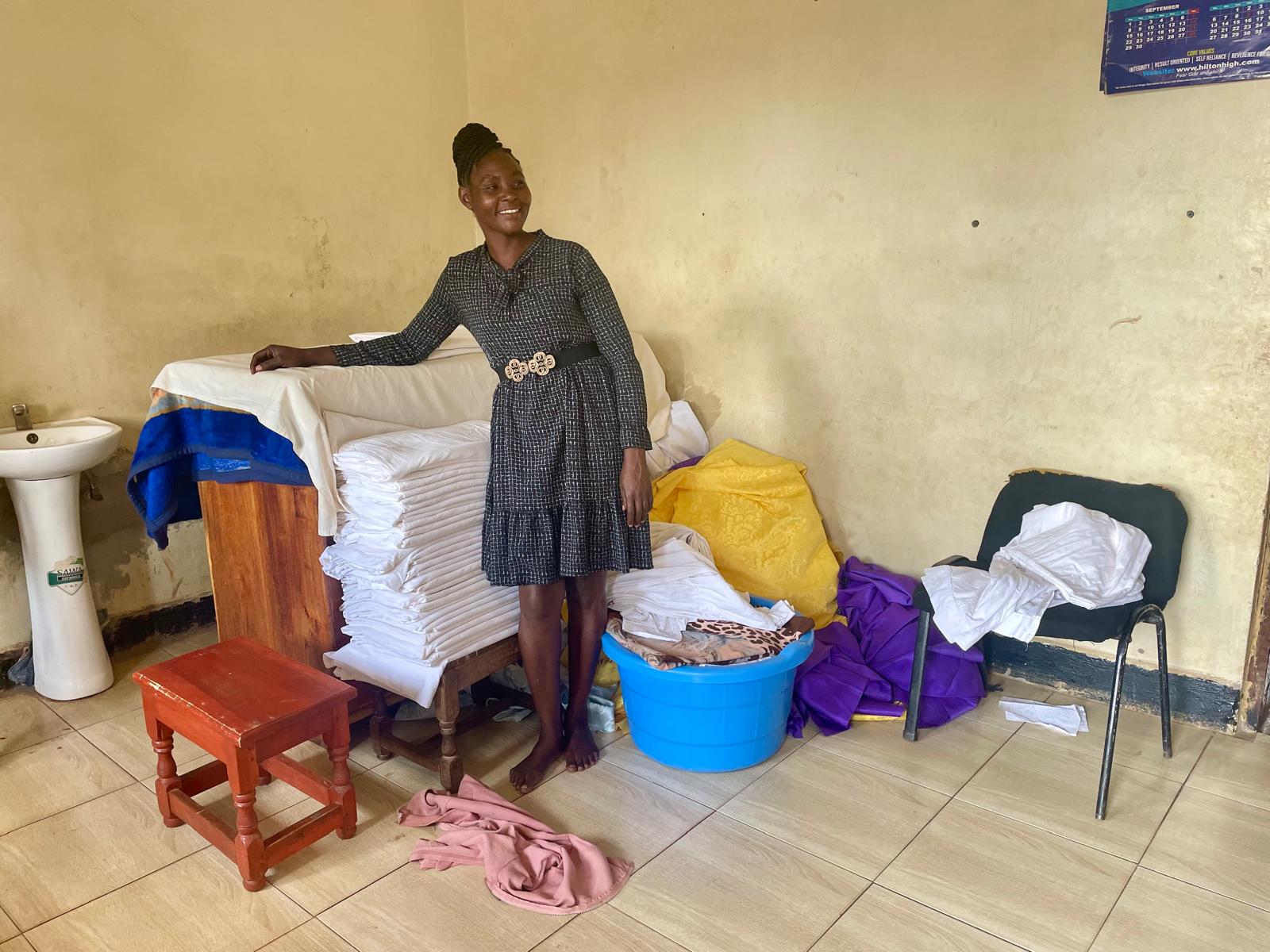
That morning I had walked to Cathy’s house just outside of town where she and her daughter had showed me around her chicken business. The mother-of-six took me out to the wooden structure where she houses the birds, which she rears until they are old enough to be sold for meat or producing eggs. It’s a simple yet effective model that has allowed her to grow steadily.
Both women had been living below the extreme poverty line when they used their earnings from working at jewellery brand Zena to start their businesses. Set up in 2017, the Zena Launch Pad programme functions differently from most forms of aid in the region. It aims to tackle extreme poverty and gender inequality in the Kamuli district through employment that provides women with seed money to start their own businesses – a model designed to foster sustainable change. Rather than keep the women dependent on their wages from working at Zena, the programme helps them to become self-sufficient and financially independent, and to start giving back to their communities.
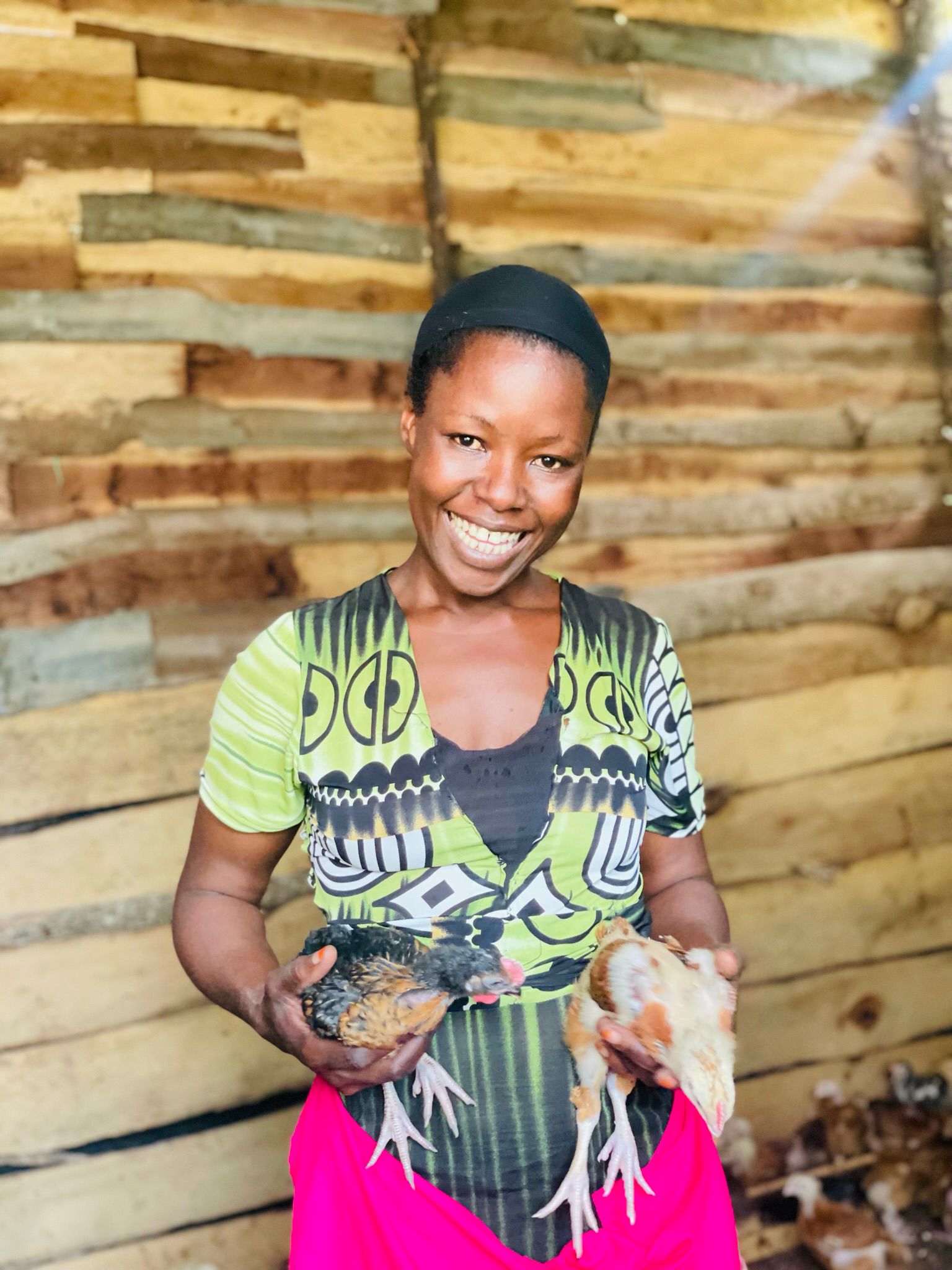
The next day, I’m greeted by two young girls at the home of Sara. Neither are her relatives but she supports both of them as well as her own family, including children and grandchildren. We walk for a kilometre or so through lush vegetation past the small garden where Sara grows food until we reach the stone house that she built with her Zena earnings before even graduating. In her mid-50s, Sara is one of the oldest women to have passed through Zena, but was determined that her business buying and selling clothes was going to succeed.
The Zena brand was founded by Caragh Bennet and Loren Thomas when they were both in their early twenties with the goal of empowering women through financial independence and entrepreneurship.
Caragh, who is originally from the UK, explains that the concept involved more than providing employment and lifting a limited number of women out of poverty; the aim was to instil the skills and confidence needed for the women to thrive after leaving the programme.
She adds: “Time and time again we were hearing women talk about their entrepreneurial dreams – they wanted to own their own businesses and be their own bosses. It was also clear that the dependency on the organisation itself was a massive hindrance to any form of scalability or local ownership. Starting Zena was a response to both of those issues.
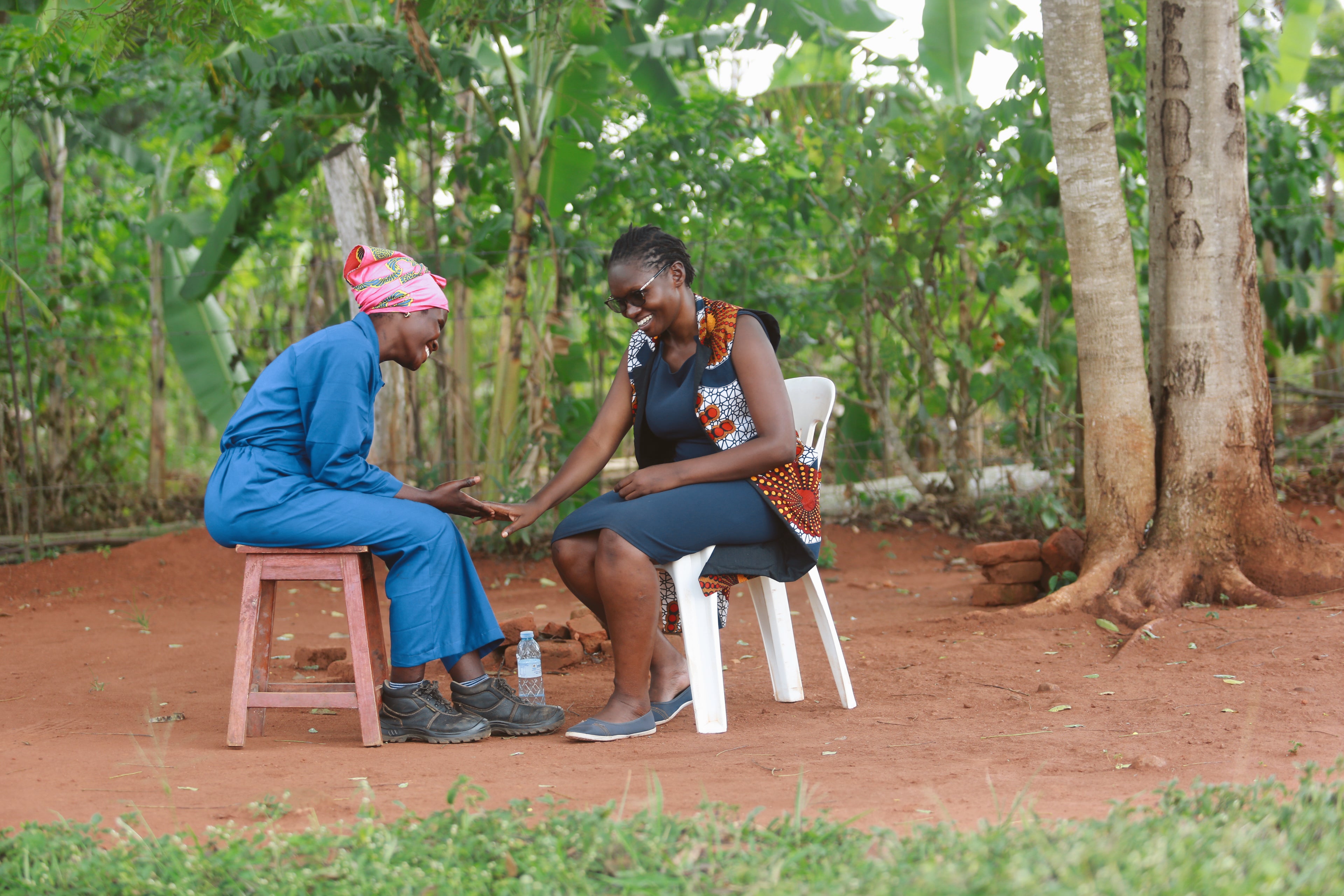
“The focus of our impact is on what happens once the women graduate; once they leave us they don’t need us.”
The Zena programme employs around 25 women at a time who work in the studio for one year creating a line of recycled jewellery, which mostly consists of earrings, but also includes bracelets, necklaces and other accessories. During their period of employment the women earn a salary, 40 per cent of which they take home each month (this is enough to bring them above the poverty line), while 60 per cent is saved for the start-up costs of their future businesses.
The key thing is no debt and no handouts... Once the women leave us they don’t need us.
But it’s not just about money. While working at Zena the women also attend daily classes and one-to-one mentorship sessions focusing on digital literacy, financial management and leadership skills. I’m told by the women that record-keeping has proven to be particularly invaluable for running their businesses – without this they’re vulnerable to overpaying tax, as well as mismanaging cash flow and volume of product.
Back at Zena headquarters, this year’s cohort of women are working to create jewellery dishes for Christmas gifting. The products are mostly made using Ankole cattle horn, which is a by-product of the local agricultural industry, and all production takes place on-site at the Zena property just outside of the main town.
Caragh explains how important it is that the brand creates high quality, responsibly produced products that can be sold in the UK and the US, as this allows them to maintain a steady revenue to fund the programme, which is also supported by donor partners. In 2021, the brand partnered with Diane Von Furstenberg for a collection at Bloomingdale’s and the fun, bold designs have been worn by the likes of Gemma Styles and Lizzo.
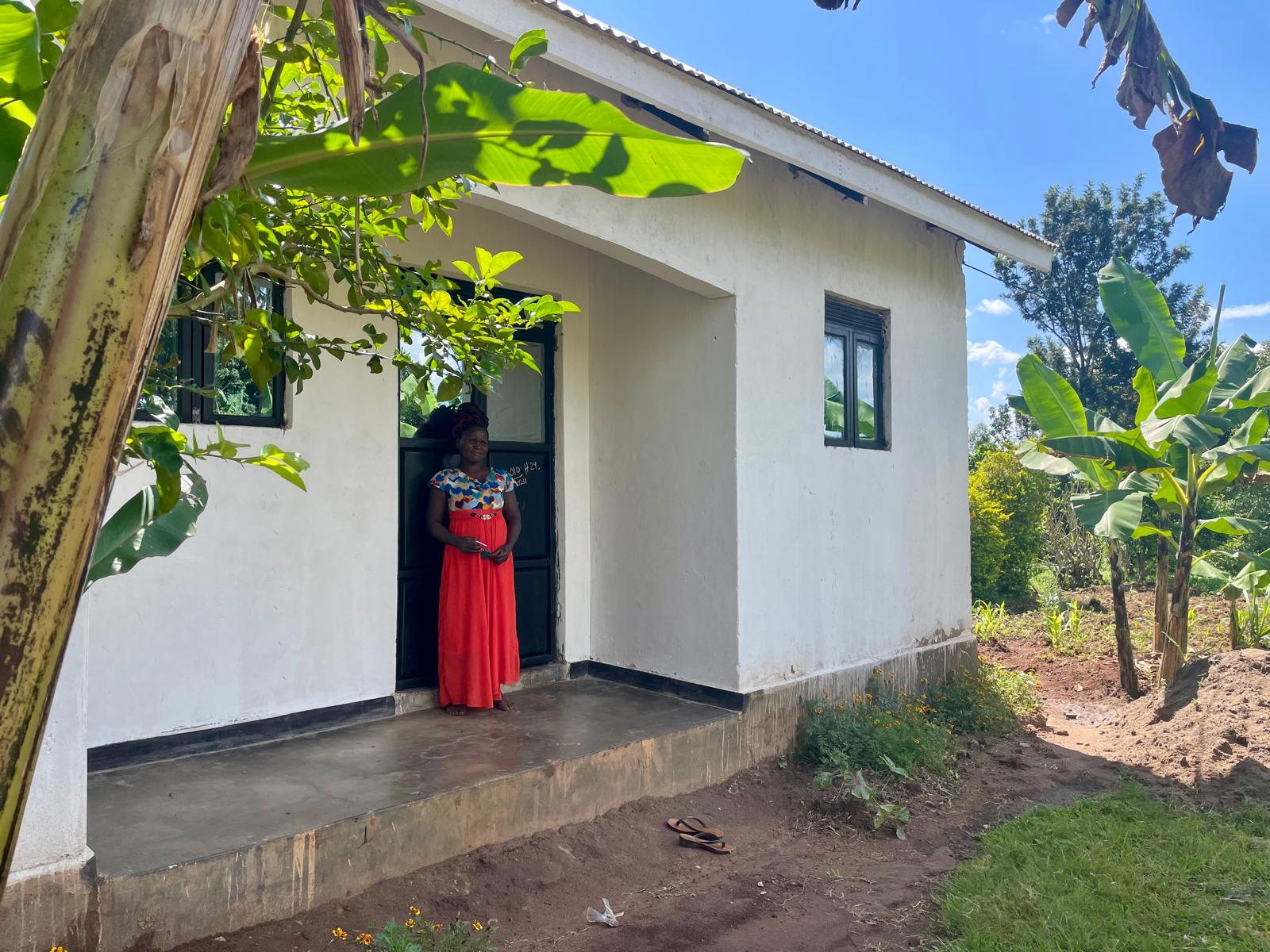
Even with the support from Zena, the women still face multiple barriers to running a business in Kamuli. Although in the past decade Uganda has made strides towards reducing this figure, data suggests that around half the population still live in multidimensional poverty, with maternal health and gender-based violence remaining serious problems. In rural areas, patriarchal norms remain entrenched and funding for gender equality in Uganda has actually decreased in the past 12 months.
Although accurate figures are hard to determine, a 2021 report from the Uganda Bureau of Statistics stated that 56 per cent of women had suffered physical or sexual violence by an intimate partner, while the Uganda Demographic and Health Survey 2022 found that 44 per cent of women had experienced physical violence since the age of 15.
Desire, the head of pastoral care at Zena, tells me that the majority of the women in this year’s programme have suffered some form of violence at the hands of a partner. A large part of Desire’s role is to help build the women’s confidence and create a space where they feel safe, comfortable and valued. She tells me that most of the women were reluctant to open up at the start of the year, but as they began to trust her and each other they started to share their stories.

She says: “They're up against a lot. There are a lot of barriers to overcome.”
Caragh explains how empowerment is at the heart of everything Zena does. She says: “For us the key thing was: No debt and no handouts. For women in rural communities who experience high levels of vulnerability to power hierarchies, we structured Zena around reducing dependency at every level and increasing agency.
“We also have found that when women are paid for their time, they experience a profound mindset shift. Very few of the women we work with have ever been paid or acknowledged for their time so receiving a salary which means they can not only support their families but save for their futures is hugely empowering.”
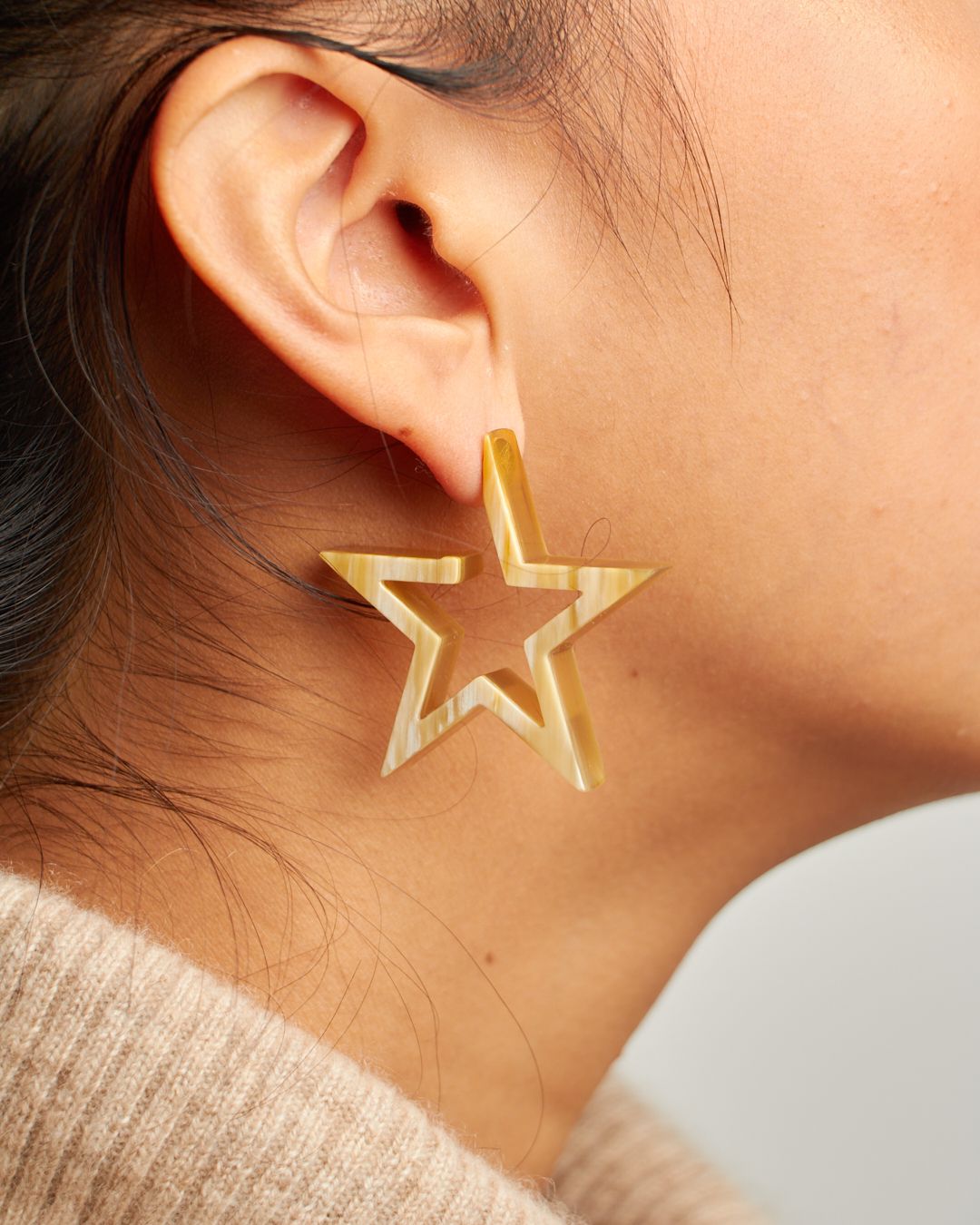
Caragh adds: “At every stage of the process we make sure the programme members are defining their goals and their dreams for themselves; they are the experts of their life and they know what empowerment means to them – rather than being told what it should look like.”
At present, all 14 staff who support the women at Zena are Ugandan, but Caragh and Loren are keen to create a funding runway that allows full Ugandan ownership and leadership. Caragh says: “The goal was always to step back. We’d love to eventually satellite the model, the data is so exciting on the success rates of the programme. We believe in the model’s ability to replicate.”
Salima has big plans for the future, too. She tells me that she would like to extend her business to a bigger property and expand into cleaning. One of her main goals is to employ more women and create further opportunities in her community. She says: “People ask me: how can a woman have such a big business like this? I’m so proud I’ve done it.”
To shop at Zena visit Thezenabrand.co.uk.
To find out more about the Zena Launch Pad programme visit Thezenaluanchpad.com.







